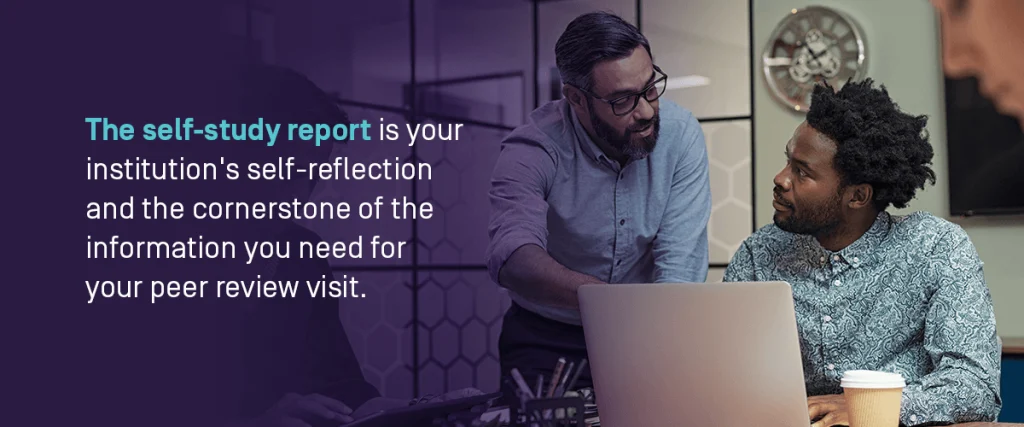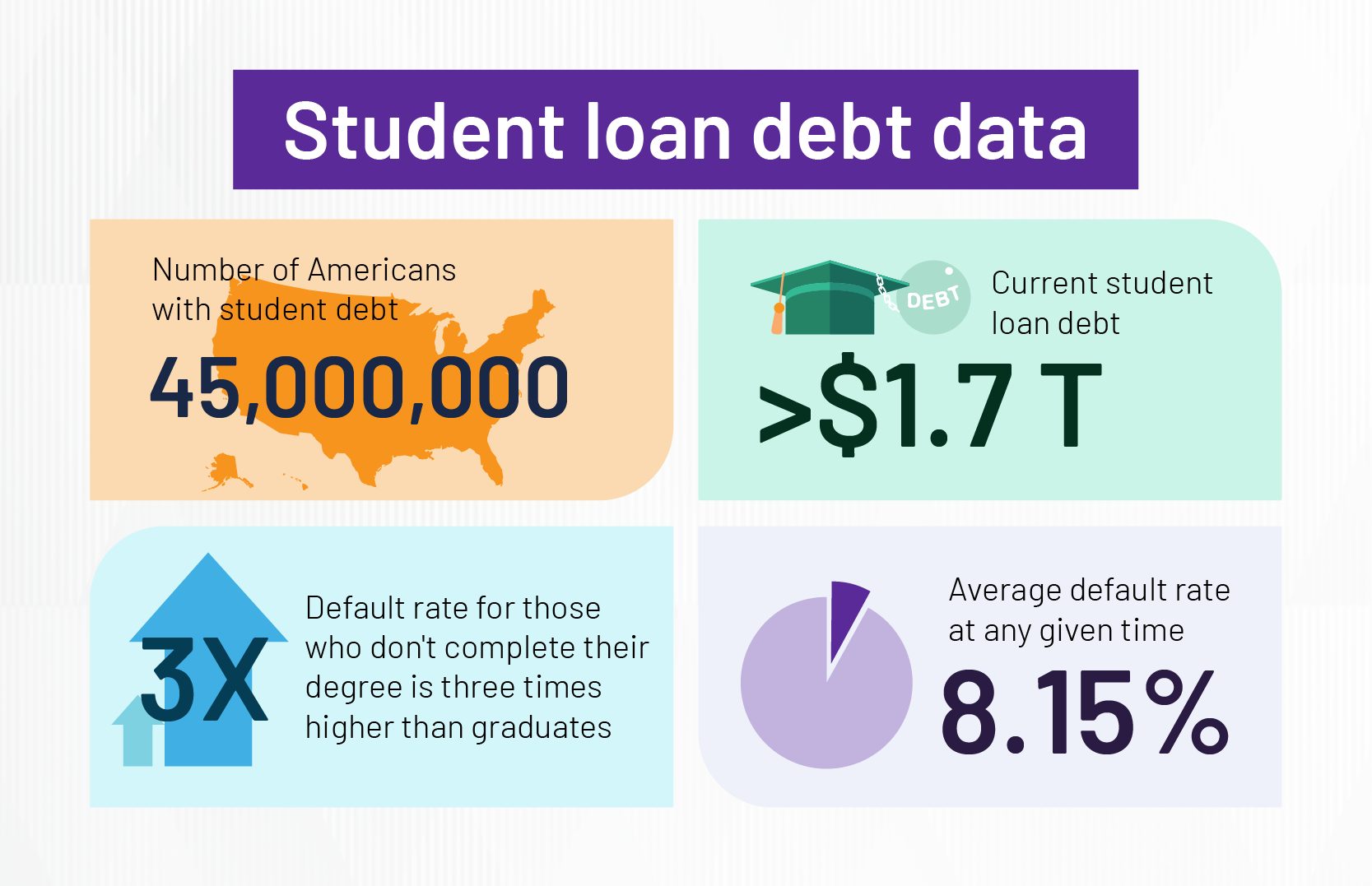Is your institution gearing up to take on its next round of peer reviews? The process can be challenging, but with plenty of preparation and organization, you can meet the accrediting team with the assurance that you’re accurately displaying your institution’s accomplishments and evidence.
Every accrediting body has a different process for reviews, yet there are some things you should expect — and prepare — for all of them. Get ready for your institution’s next peer review visit with the helpful tips in this guide and gain the confidence to pass the accreditation renewal process with flying colors.
What does the peer review process look like?
The peer review process is founded on the assumption that an institution’s peers can apply the standards created by higher education professionals to determine whether an institution provides a quality learning environment. The process advances the quality of higher learning through reviewing an institution’s policies, structures, and systems.
Peer review is a vital step in the accreditation cycle, which follows this general pattern:
- Candidacy: The institution applies and is approved for candidacy for accreditation.
- Self-reflection: An institution performs a comprehensive self-reflection to analyze its adherence to the accrediting body’s standards.
- Peer review: A trained accrediting team of higher education professionals from the accrediting body visits the institution to observe, validate the self-assessment, and create reports.
- Follow-up: The team writes a report for the accrediting body. The institution’s administrators then respond to their suggestions to design short- and long-term plans for growth.
- Ongoing support: The accrediting body may provide additional support for meeting its standards or perform an intervention if the institution fails to comply with its standards.
What to expect from a peer review visit
The timing and nature of the peer review process differ between accrediting bodies. For example, some parts of the peer review might be conducted online. Each accrediting body has unique standards and expectations. However, reviews all center around a rigorous on-site evaluation from a peer review team consisting of peers from the educational community.
Here are the top accreditation peer review expectations you should have for your institution’s upcoming assessment:
- Multiple days of assessment: The accreditation team could conduct their on-site evaluation for as long as three days, spending all that time evaluating your institution’s policies and structures meticulously.
- Observation of teaching and learning: Reviewers will likely want to sit in on class lectures and other learning activities.
- Rounds of interviews: Interviews are an essential component of peer review visits. Reviewers will want to meet with the provost, other high-level administrators, and faculty members.
- Recommended strategies: After the visit, the reviewers write a report and offer potential strategies for improvement and meeting the institution’s goals.

What you need for your peer review visit
The self-study report is your institution’s self-reflection and the cornerstone of the information you need for your peer review visit. Reviewers will read this document before their visit, so it must be as accurate as possible. The self-study report includes information about the following categories and potentially several others:
- Operational effectiveness: You will need to demonstrate the effectiveness of various policies and procedures and substantiate your claims with data.
- Student satisfaction: Student satisfaction is a key metric. Use survey data to track student engagement and satisfaction with the programs offered.
- Faculty qualifications: Log faculty research, service, and teaching assignments to demonstrate your faculty’s capabilities. Using a faculty activity reporting system helps authenticate your claims.
- Standards compliance: You should be familiar with your accrediting body’s standards and requirements for accreditation. In the self-study, you will use accumulated data to substantiate the claim that you are meeting these standards or making improvements toward full compliance.
- Federal regulations compliance: Your institution must also meet federal requirements relating to privacy, ethics, nondiscrimination, and more.
You will also need to submit a growth plan as a separate document or folded into the self-study report. This report uses thorough evaluation to identify areas of institutional growth and strategies for improving student outcomes.
How to prepare for an accreditation peer review visit
Preparing for an accreditation peer review visit takes forethought and good organization. Follow these tips to prepare for your accreditation peer review:
1. Begin well in advance
Administrators should start gathering and reflecting on the necessary data far before their next scheduled review — two to three years before the peer review visit. Use a student feedback system like Watermark Course Evaluations & Surveys to track student engagement and determine program effectiveness year over year, so all the data you need is in one place.
When preparing for your peer review visit, appoint a coordinator to ensure the research process meets specific deadlines. Spend time familiarizing yourself with the agenda and reviewing your institution’s self-study. This will help you identify areas where reviewers will likely ask questions and prepare to answer them.
You must also gather data that reveals how well you and the institution follow policies and procedures. The data should reflect how effective the policies are at serving your students. The student feedback you receive through course evaluations and surveys can help ensure the accuracy of students’ satisfaction and engagement. Exhaustive surveys allow your administration to truly see how the policies and procedures are working for those affected by them.
Besides student surveys, you should also have documentation showcasing your faculty’s strengths, talents, and qualifications. Your faculty plays a vital role in student development, and their work should receive recognition during the peer review visit. Keeping yourself and your team ready for the appointment by understanding the provided documentation can demonstrate how dedicated staff is to serving and providing students with support, resources, and assistance throughout their college careers.
When you collect the data and evidence well in advance, you can see the changes over time and paint a better picture of what happens at your institution.
2. Organize your evidence
Your institution should base its narrative on the data it has collected over the past several years and how it meets specific standards. When you’re regularly documenting information across programs and storing it in a document repository, you can later pull those reports and use them to drive your arguments. For example, does the data from a particular degree program’s quarterly reports show the improvement you planned? Organized data fills in the gaps for reviewers and demonstrates your continuing dedication to improvement.
Planning & Self-Study is Watermark’s system for helping institutions gather vital accreditation data, streamline the review process, and drive faculty discussions about strategies for improvement. Planning & Self-Study supports a collaborative approach by customizing your report template and keeping contributors in the loop.
While organizing your evidence, regularly check that you have data proving your institution meets accreditation standards. You should also double-check that it follows your state’s and town’s educational regulations and have proof that it complies. Your evidence is key to presenting the image of the institution you want.
With your evidence organized and analyzed, you can create a mission statement that clearly conveys your institution’s goals and intentions. Preparing a mission statement that explicitly shows your commitment to improving the college and what the institution already does can help peer reviewers gain quick insight into your institution’s story. Building and supporting the story through concrete examples and data enables you to set the standard for evaluating your college.
3. Prep interviewees
Encourage faculty, administrators, and students to share their experiences with the peer review team candidly. This will ensure the greatest cooperation during the peer review accreditation process. People may be afraid to share the ups and downs, but doing so helps the accreditation team gather an accurate picture of your institution. Give interviewees a summary of the information you’ve already shared. Consider filling the interview schedule with more faculty members than senior leadership, as faculty may be more helpful for reviewers.
Remember to share your institution’s plans for solving any issues, like a new plan for increasing enrollment. It presents a better image to be upfront about your institution’s goals for improvement, rather than allowing the reviewers to find issues themselves.
Before finishing the growth plan, you may even consider asking the interviewees about their stances on the improvement ideas in it. You can learn if you are focusing on the right things or if they have any suggestions since they often interact with students the most. Insight from faculty helps administrators gain valuable information in areas they may not have otherwise if they don’t regularly interact with students and staff.
Some accreditation peer review visit questions may focus on the curriculum and how faculty approaches their classes and teaching based on direction from the institution. Prepping your interviewees can help them respond confidently.
4. Practice hospitality
It’s essential to showcase your institution’s unique campus culture and practice hospitality during the peer review process. Assign a logistics coordinator to show reviewers around campus, book interview rooms, handle the transportation, and manage other aspects of the visit. Using a project coordinator helps ensure that the visit is productive and stays on track.
Remember that reviewers are people too. Provide them with a workroom on campus and at their hotel to review your materials. Give them plenty of office supplies, snacks, and coffee during their visit.
Showing engagement during the review sessions while caring for reviewers’ comfort can make a difference. Hospitality shows your institution cares about the people who visit the campus, whether they’re students, staff, prospective students and parents, or reviewers. Kindness and care go a long way, so ensure everyone involved with the peer review visits understands that practicing great hospitality is as important as all the information presented about the school.
5. Polish your narrative
Putting your best foot forward is essential for representing your institution well. Communicate your institution’s unique mission clearly throughout your narrative so reviewers can zero in on your approach. Use Watermark’s Outcomes Assessment Projects to precisely measure learning outcomes and streamline assessment.
Use an editor to ensure your institution’s brand and mission are reflected throughout your self-study and unify your responses to each standard. Double-check all links for each piece of evidence to make review easier for the accreditation team.
A well-put-together narrative and documentation of your growth plan and evidence to support your answers to questions will help you and your team deliver responses that reveal your institution’s strengths. Accreditation peer review visits can provide vast results, and preparing for the review as much as possible will help you succeed in bolstering the institution’s reputation and appearance.
Watermark solutions support the accreditation process
A peer review visit is an opportunity to demonstrate your institution’s commitment to its students, resources, and mission. Reviewers want you to succeed, so trust in the process. With the right amount of preparation, you can successfully demonstrate your institution’s commitment to student advancement and its plans for improvement.
At Watermark, we are committed to empowering higher education institutions with the solutions they need to collect and assess data to drive institutional improvement. Our services enable institutions to measure student satisfaction, gauge the achievement of learning outcomes, and generate automatic reports for developing growth plans.
With Watermark, insights drive progress. Visit our blog for more helpful tips from real peer reviewers or request a demo for our solutions today.















































































































































































































































































































































































































